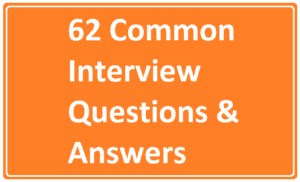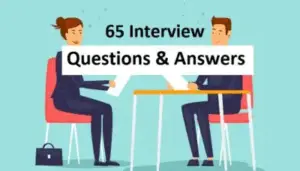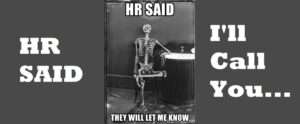28 Gulf Job Interview Questions and Answers.
Wouldn’t it be great if you knew exactly what interview questions the recruiter would ask you at your next job interview?
Here we are providing you with a list of the 28 Gulf Job Interview Questions and Answers. This article is very helpful for job seekers or any professionals who are residing in the gulf or planning to move to the gulf countries.
Looking for a new job in the Gulf region? 🏙️ Whether you’re eyeing positions in Dubai, Qatar, or Saudi Arabia, getting ready for your interview is key to landing that dream job 🌟. But don’t worry, we’ve got your back! In this article, we’ve compiled 28 of the most common job interview questions you’ll likely face, along with helpful, professional answers that’ll help you stand out from the crowd 💼. Think of this as your job interview cheat sheet (don’t worry, we won’t tell anyone 😉)! From the classic “Tell me about yourself” to the tricky “Why should we hire you?” we’ll walk you through how to ace your interview with confidence and a smile 😁. Let’s dive in and get you one step closer to your next big opportunity! 🌍
While we do not recommend that you have a script-based answer to every interview question (please do not have it). But what we recommend you is to spend time getting comfortable with the questions that may come up during an interview. What a Gulf recruiter is looking for in your answers, and what it takes to show that you are the right man or woman for the job.
Look at this list as an aid to preparation before your job interview and these are not final answers tailored to you.
Sample Gulf Job Interview Questions and Answers:
Question 1. Can you tell me a little about yourself?
“Absolutely, thank you for asking! 😊 I’m Mohamed, a Civil Engineer with a solid background in construction and project management, currently based in Dubai. I bring over [number] years of experience working on large-scale construction projects, focusing on designing and implementing efficient and sustainable solutions 🏗️. I’m passionate about team collaboration and believe that great leadership means working alongside the team to achieve the best results 🤝. Outside of work, I enjoy staying updated on the latest engineering trends and connecting with other professionals 🌐, as I believe continual learning is essential in our fast-evolving field.”
Also Read:- Why am I not getting any interview calls?
Question 2. Where did you hear about the position?
“I actually came across this position through some industry contacts who spoke highly of the company and the exciting projects you’re working on in the region 🌍. It sounded like a fantastic opportunity to contribute my skills in a place where innovation and growth are so highly valued. I did a bit more research, and the company’s commitment to quality and sustainable development really stood out to me 🌱. I knew right away it was something I wanted to be part of.”
Question 3. What do you know about the company?
“From my research, I understand that your company is a leader in the construction and infrastructure sector in the Gulf region, known for tackling large, high-impact projects that emphasize both quality and sustainability 🌱. I’m really impressed by your commitment to innovative engineering solutions and your reputation for delivering on challenging timelines while maintaining a strong focus on safety and excellence 🏗️. I also noticed that you’re involved in some iconic projects that are transforming the region, and it’s exciting to see the role your team is playing in driving forward the future of infrastructure here. I’d love the opportunity to contribute to such impactful work!”

Question 4. Why do you want this job?
“I’m genuinely excited about this role because it aligns perfectly with my skills and career goals 🎯. I’ve built my experience around managing and executing complex construction projects, and I’m eager to bring that expertise to a company that’s as forward-thinking and impactful as yours. I admire the work you’re doing to shape the infrastructure landscape here in the Gulf, and I’m particularly drawn to your commitment to innovation and quality 🌟.
This role feels like the ideal environment for me to continue growing professionally while contributing meaningfully to high-profile projects. Plus, working with a team that values collaboration and excellence is exactly the kind of atmosphere where I thrive!”
Also Read:- 65 Interview Questions with Answers for Dubai – UAE
Question 5. Why should we hire you?
“I believe I’d be a great fit for this role because I bring a strong combination of technical expertise, practical experience, and a collaborative mindset 🤝. As a Civil Engineer, I’ve successfully managed and executed large-scale projects in the Gulf region, often working under challenging conditions to meet tight timelines and high standards. I’m known for my attention to detail and my ability to solve problems on the spot, which I know is critical in ensuring projects stay on track and on budget 📊.
Beyond the technical side, I’m passionate about teamwork and believe that great results come from working well together. I’m also committed to continuous learning and staying up-to-date with the latest advancements in construction and engineering, which I’d love to bring to this role 🌱. I’m confident I can contribute not only through my skills but also by helping to foster a positive and efficient work environment.”
Question 6. What are your biggest professional strengths?
“My biggest professional strengths are my problem-solving abilities, my attention to detail, and my dedication to teamwork 🤝. In a fast-paced field like civil engineering, unexpected challenges can arise at any stage, and I’m skilled at finding effective, practical solutions under pressure. I’m also highly detail-oriented, which helps me ensure that every part of a project meets the highest standards and complies with both design specifications and safety regulations 📐.
Another strength I bring is my commitment to collaboration. I believe that when a team works together well, we can achieve the best results for the project and for the company. I’m always willing to support my teammates, share knowledge, and learn from others 🌱, which I think contributes to a positive and productive work environment.”
Question 7. What are your weaknesses?
“One area I’ve been working on improving is my tendency to be a perfectionist 🧐. I’ve always had a strong focus on quality, and sometimes that can lead me to spend a bit more time than necessary ensuring every detail is just right. However, I’ve learned to balance this by setting clear priorities and deadlines, and I’ve become more adept at knowing when something is ‘good enough’ without compromising the overall outcome.
I’ve also been working on delegating more effectively. I tend to take on a lot of responsibility myself, but I’ve realized that sharing tasks with the team not only lightens the load but also encourages growth and strengthens collaboration 💪.”
Question 8. What is your biggest achievement?
“My biggest achievement to date was leading the successful completion of a large-scale infrastructure project under tight deadlines and within budget. The project involved complex coordination between multiple teams, contractors, and stakeholders, and required navigating several unexpected challenges along the way. Through clear communication, proactive problem-solving, and maintaining a focus on quality, we were able to deliver the project on time with no compromise on safety or standards 🏗️.
What makes this achievement particularly meaningful to me is not just the technical success, but the positive impact it had on the community and the pride my team felt in our collective effort. It reinforced my belief in the power of teamwork and effective leadership in driving project success 🌟.”
Also Read:- The 10 most difficult questions to be asked in the interview
Question 9. Tell me about a challenge or conflict you have had in the workplace and how you handled it.
“One challenge I faced was during a project where there were disagreements between the design team and the contractors about the best approach for a certain structural element. The design team had a specific vision, while the contractors were concerned about the feasibility and cost of implementing it exactly as specified. This led to tension and delays, which threatened the overall project timeline.
To resolve the situation, I took the initiative to organize a meeting between both teams. I made sure to listen to everyone’s concerns first, acknowledging the value of both the design intent and the practical considerations. Then, I worked with both sides to find a middle ground — a solution that maintained the integrity of the design but also addressed the budget and feasibility concerns of the contractors.
In the end, we were able to agree on a compromise that satisfied both teams, and the project moved forward without further delays. I learned the importance of open communication, being proactive in resolving conflicts, and maintaining a collaborative attitude to achieve the best results for the project and the team 🤝.”
Question 10. Where do you see yourself in five years?
“In five years, I see myself having grown into a more senior leadership role within the company, where I can contribute to larger, more complex projects and help shape the strategic direction of the team. I’m passionate about continuous improvement, so I hope to have gained further expertise in project management, advanced construction techniques, and perhaps even taken on more responsibilities in mentoring and guiding junior engineers 🌱.
I also hope to have built strong relationships within the company and the industry, becoming someone others can rely on for advice and leadership. Ultimately, my goal is to be part of a team where I can continue to learn, make a positive impact, and contribute to the company’s ongoing success and growth in the region 🏗️.”
Question 11. What is your dream job?
Question 12. Have you applied for any other jobs?
“Yes, I have applied for a few other positions, as I’m actively looking for a role that aligns with my career goals and allows me to make a meaningful impact 🌱. That said, after learning more about your company and the exciting projects you’re involved in, I can confidently say that this opportunity stands out the most to me. I’m particularly drawn to your innovative approach and commitment to excellence in the Gulf region 🏗️. This role aligns perfectly with my skills and aspirations, and I’d love the chance to be part of such a dynamic team! 🙌”
Question 13. Why are you quitting your current job?
“I’m grateful for the experience and opportunities I’ve had in my current role 🙏, but I’m looking for a new challenge that will allow me to grow further and make a bigger impact. While I’ve learned a lot and built valuable skills, I feel that this role offers the kind of dynamic environment and exciting projects that align more closely with my long-term career goals 🚀. I’m particularly excited about the opportunity to contribute to high-profile projects in the Gulf region, and I believe your company is the ideal place for me to take the next step in my career 🏗️.”
Also Read:- How Do I Follow Up After a Job Interview?
Question 14. Why were you fired?
Question 15. What are you looking for in a new job?
“In a new job, I’m looking for an environment where I can continue to grow professionally and take on more challenging projects 🌱. I’m particularly interested in roles that offer the opportunity to work on high-impact, innovative infrastructure projects that are making a difference in the region 🌍.
I’m also looking for a company that values collaboration and teamwork 🤝, where I can contribute my skills while also learning from others. A culture of continuous learning and development is important to me, as I’m always eager to stay up to date with industry trends and improve my skills. Ultimately, I want to be part of a team that shares my values of excellence, integrity, and a commitment to delivering top-quality results 🏗️.”

Question 16. Which work environment do you enjoy the most?
Question 17. What type of leader are you?
“I would describe myself as a collaborative and supportive leader. I believe in leading alongside my team rather than from the top down, ensuring that everyone feels empowered and valued 🤝. I’m a firm believer in the principle of ‘Serve to Lead’ — it’s important to guide and support my team in reaching their potential, and I strive to create an environment where everyone can contribute their best work 🌱.
I encourage open communication, constructive feedback, and a problem-solving mindset. By building trust and fostering a culture of mutual respect, I aim to inspire my team to take ownership of their tasks and feel confident in their roles. I believe that leadership is about listening, motivating, and helping others succeed, while also driving the project toward its goals with clear direction and focus 🏗️.”
Also Read:- Interview Skills and Techniques
Question 18. Can you give an example of a time when you exercised good leadership?
“Absolutely! One example that stands out was during a particularly challenging project where we were facing tight deadlines, a complex design change, and some misalignment between the design team and contractors. The project was at a critical phase, and tensions were running high.
As the team leader, I organized a meeting with all stakeholders to address the concerns, listen to everyone’s point of view, and facilitate a collaborative discussion. I encouraged open communication and helped mediate between the teams to find a solution that worked for everyone. I made sure to acknowledge the hard work each team was putting in and kept everyone focused on our shared goal.
By leading with empathy, patience, and a solutions-focused mindset, we were able to align the teams and make a necessary design adjustment that not only met the project’s requirements but also kept the timeline intact. The project was successfully delivered on schedule, and the team felt more united and confident moving forward.
This experience reinforced my belief in leading with empathy and clear communication to motivate the team and solve problems together 🤝.”
Question 19. Can you give an example of a time when you disagreed with a decision made at work?
“Certainly! There was a situation on a previous project where a decision was made to reduce the scope of a key structural component in order to save costs. While I understood the need to manage the budget, I disagreed with the decision because I felt it could compromise the long-term durability and safety of the structure.
Instead of simply accepting the decision, I took the time to present my concerns to the team and leadership. I prepared a detailed analysis of the potential risks and long-term costs, including potential repairs or safety concerns that could arise down the line. I also suggested alternative cost-saving solutions that wouldn’t sacrifice quality or safety, such as optimizing the design or sourcing more affordable materials without compromising structural integrity.
After discussing the issue and presenting my findings, we were able to revise the decision, ensuring both cost efficiency and the necessary safety standards were met. It was a moment where I learned the value of speaking up, providing data-driven solutions, and maintaining a constructive dialogue, even when you don’t agree with a decision initially. The outcome strengthened my ability to communicate effectively and balance quality with budget constraints 🏗️.”
Question 20. How would your boss and your colleagues describe you?
“I believe my boss and colleagues would describe me as dependable, collaborative, and solution-oriented. I’m someone who can always be counted on to meet deadlines, stay focused on the task at hand, and go the extra mile to ensure that the job is done to the highest standard. My colleagues often tell me that I’m approachable and easy to work with, and I strive to create an open and supportive work environment where everyone feels valued 🤝.
In terms of leadership, they would say that I lead by example, supporting the team while maintaining clear communication and staying calm under pressure. I’m known for bringing a positive attitude to the team, even when faced with challenges, and I work hard to foster collaboration and problem-solving in any situation 🌱.”

Question 21. Why do you have a hole in your CV?
“I understand that gaps in a CV can raise questions, and I’m happy to explain. During the time in question, I took a break to focus on personal development, which included pursuing further training in [mention any relevant skills, certifications, or courses you took], as well as some personal reflection to ensure I was aligning my career path with my long-term goals. This period allowed me to come back with a clearer sense of direction and a renewed energy for my work.
During that time, I also stayed connected with the industry through networking and attending events, so I remained up-to-date with the latest trends and advancements. This break ultimately made me a more focused and well-rounded professional, ready to take on new challenges. I’m excited to be back in the workforce and eager to contribute to a dynamic team like yours.”
Question 22. Can you explain why you changed careers?
Question 23. How do you handle pressure or stressful situations?
“I handle pressure by staying calm, focused, and organized. When faced with a stressful situation, I first take a step back to assess the situation and break it down into manageable tasks. Prioritizing tasks and focusing on the most immediate and important actions helps me stay on track 📝.
I also believe in the power of clear communication. If there’s pressure coming from different directions, I make sure to keep the team and stakeholders informed about progress and any potential roadblocks, which helps reduce anxiety and align expectations 🤝.
On top of that, I make a conscious effort to stay positive and keep the team motivated, ensuring that everyone knows we can tackle challenges together. In my experience, when everyone stays calm and focused, the pressure feels more like an opportunity to problem-solve and achieve something great 💪.”
Question 24. What salary do you expect to receive?
“I believe in the importance of being fairly compensated for my skills and experience. Based on my research and understanding of the role and the industry standards in the Gulf region, I would expect a salary in the range of [mention a specific range or a figure based on your research], but I am open to discussing the total compensation package further, including benefits and growth opportunities. My main priority is finding a role where I can contribute meaningfully to the team and grow professionally 🌱. I’m confident that we can find a mutually beneficial agreement.”
Question 25. What do you do in your spare time?
“In my spare time, I enjoy staying active and exploring new hobbies that help me recharge. I love spending time outdoors, whether it’s hiking, cycling, or just taking a walk in nature 🌳. I also enjoy reading, particularly books related to personal development, engineering innovations, and leadership.
In addition, I like to spend time learning new skills, whether through online courses or hands-on projects. This could include working on DIY home improvement projects or learning new software that can enhance my work as a Civil Engineer 💡. I find that these activities not only help me relax but also keep me inspired and motivated to bring fresh ideas into my professional life.
Lastly, I believe in giving back to the community, so I occasionally volunteer for local charity events or initiatives that focus on improving infrastructure or supporting sustainable projects 🌍.”
Question 26. How do you prioritize your work when handling multiple projects?
“When managing multiple projects, I always start by clearly understanding the deadlines and deliverables for each task. I break down larger projects into smaller, manageable tasks and prioritize them based on urgency and impact. I use project management tools to track progress and set clear milestones for each project 🗂️.
Communication is also key. I make sure to keep stakeholders updated on timelines and any challenges, so expectations are managed effectively. By staying organized and focused, I can ensure that each project gets the attention it needs, and deadlines are met without sacrificing quality 📅.”
Question 27. How do you stay up-to-date with industry trends and changes?
“I believe it’s important to stay on top of industry trends to remain competitive and innovative in my work. I regularly read engineering journals, attend webinars, and participate in industry conferences to learn about new technologies, best practices, and emerging trends 🌐.
I also engage with online communities and professional networks where I can exchange ideas with colleagues and experts in the field. Staying connected with others in the industry helps me stay informed and inspired, and I try to bring any new insights or techniques I learn into my projects for continuous improvement 💡.”
Question 28. Do you have any questions for us?
Yes, here are a couple of questions you could ask:
QA. Can you tell me more about the team I would be working with and the company culture?
“I’m really excited about the possibility of joining your team, and I’d love to know more about the people I’d be working alongside. What’s the team dynamic like, and how would you describe the company culture? I’m always looking for a collaborative environment where I can contribute, learn, and grow.”
QB. What are the key challenges or priorities the company is currently facing, and how could I contribute to addressing them in this role?
“I want to understand the bigger picture and how I can contribute to the company’s success. What are the key challenges or priorities the company is focused on at the moment, and how do you see this role helping to address them? It would be great to know where I can add the most value and help drive the company’s goals forward.””I want to understand the bigger picture and how I can contribute to the company’s success. What are the key challenges or priorities the company is focused on at the moment, and how do you see this role helping to address them? It would be great to know where I can add the most value and help drive the company’s goals forward.”




































